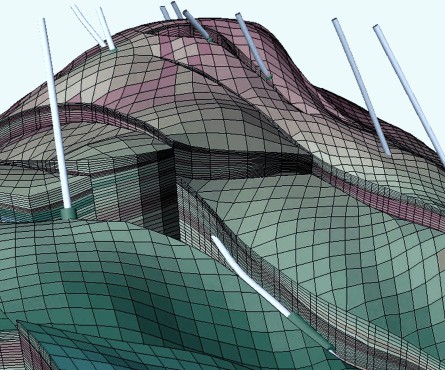Course Details
Home / Public Courses / Course Details
Geological Storage of CO2: Pick the Right Reservoir (RES71)
13-17 October 2024 5 days Tripoli, LibyaCourse Fee: 3600 EUR21-25 October 2024 5 days Vienna, AustriaCourse Fee: 3550 EUR + VAT
Description
CCUS / Geological sequestration of CO2 is emerging as an important tool to get to net-zero greenhouse gas emissions by 2050 for combating global warming, and over the last few years, has developed rapidly. Much of the technology is similar to oil and gas fields operations. However, there are important differences which require adaptation of the industry’s subsurface knowledge to this new application. The essential questions for any CO2 storage project are: (a) where can we store the CO2? (b) how much CO2 can we inject? (c) can we store it safely? and (d) can we store it cost-effectively?
This course will address these questions by using historical practices developed in the oil and gas industry and adapting engineering design concepts to the CO2 storage task.
Course Level: Skill
Instructor: Emina Buket Ulker
This course will address these questions by using historical practices developed in the oil and gas industry and adapting engineering design concepts to the CO2 storage task.
Course Level: Skill
Instructor: Emina Buket Ulker

Designed for you, if you are...
- A geologist, reservoir engineer, petroleum engineer, production or completion engineer, business development manager, asset manager, project manager, government official or any other professional involved or interested in CCS
How we build your confidence
- Power point presentations
- Exercises
- Q&A
The benefits from attending
By the end of the course you will feel confident in your understanding of:- Current state-of the-art of research in the field of CCS; screening of CCS projects worldwide
- Fundamentals of CCS, its interdisciplinary connections and the ability to appraise the role of CCS more widely within the energy transition
- Assessing the storage volume capacity by investigating the combined effects of capillary pressure, salinity, and in-situ thermodynamic conditions on CO2-brine/reservoir fluid-rock interactions in a saline aquifer or depleted reservoir
- Addressing the potential CO2 leakage paths; mitigating the risk by optimising the injection strategy and well completion
- Quantifying the uncertainty with different realisations to scale geological properties, major faults, and their sealing capacity as well as rock compressibility
- Monitoring the geological storage of CO2, types of monitoring technologies and techniques, monitoring strategies, results, and modelling temporal responses accordingly
- Identifying the uncertainties affecting the future field behaviour and reduce their impact by optimising the field performance through a systematic application of integrated reservoir management and multidisciplinary technologies
- The impact of CCS on the energy landscape, society, and climate as these topics govern the success of the research that is being carried out to solve one of greatest challenges of our generation
Topics
- CCS projects screening
- Outline climate change evidence and rationale for storing CO2 and how much volume can be stored: Real field and engineered CO2 storage examples
- CO2 storage in saline aquifers and depleted reservoirs:
- Storage mechanisms
- Phase behaviour
- Physical and geochemical parameters, and constraints - CO2 injection as EGR/EOR
- Injection strategies
- Monitoring plan and verification
- Potential leak paths and leakage mitigation; risk assessment and management
- Flow assurance
Customer Feedback
"The instructor is awesome and the material is well-developed and very interesting."- Petroleum Engineer at Saudi Aramco
"The information given was very useful."
- CCS Reservoir Management Petroleum Engineer at Saudi Aramco
"Excellent delivery and engaging conversation."
- Senior Reservoir Engineer at Saudi Aramco
"Very interesting, gives you the full picture. Thanks for Dr. Emina, she is very knowledgeable and helpful."
- Petroleum Engineer at Saudi Aramco
"The course was a great overview of CCUS. The mix of high-level information intertwined with more technical concepts offered great insights."
- Associate Petroleum Engineer at Saudi Aramco
© All rights reserved
HOT Engineering GmbH Tel: +43 3842 43 0 53-0 Fax +43 3842 43 0 53-1 hot@hoteng.com
